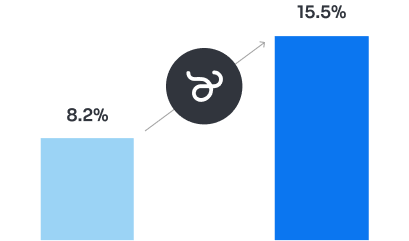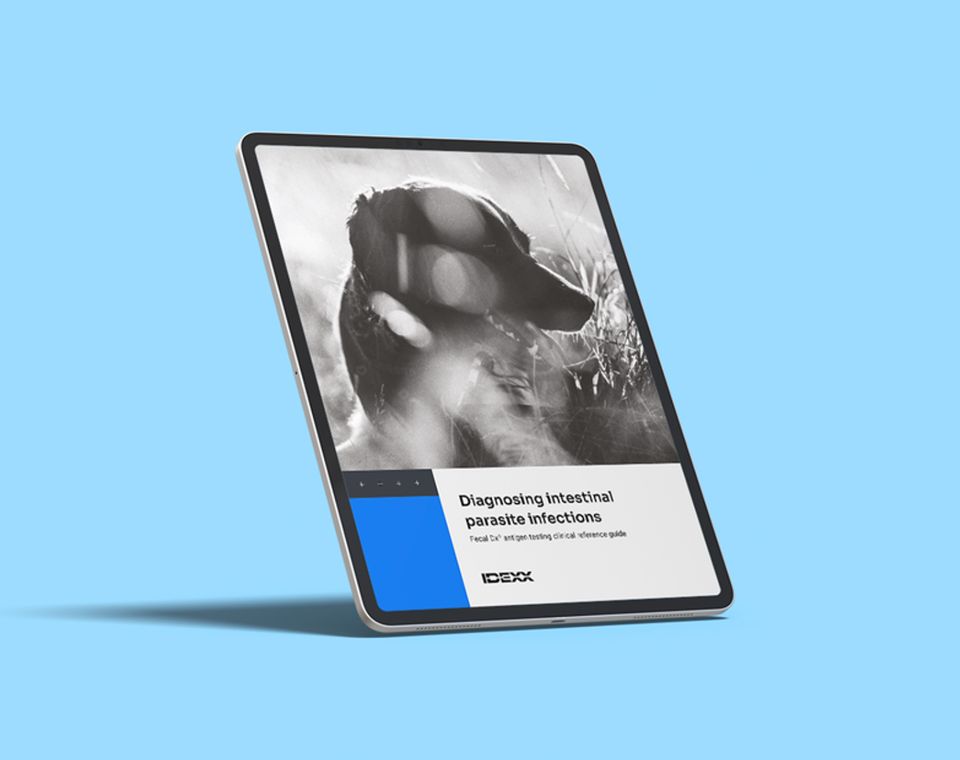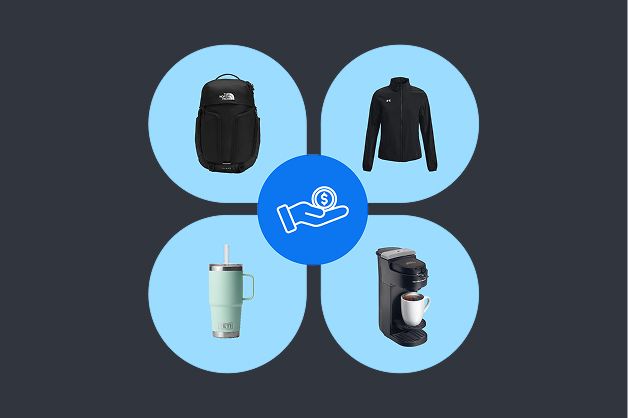Fecal Dx antigen testing.
For early, accurate detection of the most common, clinically relevant intestinal parasites—even before eggs are present.1–3


Accurately screen for the most common and clinically relevant intestinal parasites.
Fecal Dx antigen testing detects parasite-specific antigens rather than relying on the presence and detection of eggs. More infections can be caught earlier, even in pets that seem perfectly healthy.1-3
The Companion Animal Parasite Council (CAPC) agrees that antigen testing is an advanced diagnostic method, and they don’t recommend passive flotation, where parasite infections can be missed, leading to missed diagnoses.4

The future of parasites is they have no future.
It’s true. Fecal antigen testing is the future of parasite screening as we know it, catching up to 2x more infections. And now, after a retrospective study of nearly 900,000 cases that compared fecal antigen testing to flotation, we have the data to prove it.5

Detect up to 2x more infections earlier than fecal flotation.5†
A study you’ll want to study.
See our latest findings about antigen testing superiority over flotation here:

Diagnosing intestinal
parasite infections.
For a more in-depth look at parasite life cycles, how they present, CAPC recommendations, how to minimize the threat of infection, and much more, download our clinical reference guide.
Download now
Let us make it even easier for you.
With our Parasites & Perks promotion,‡ you can earn credits redeemable for staff rewards at the IDEXX third-party marketplace.

Upgrade now, pay later, benefit forever.
We make it easy for you to upgrade to Fecal Dx antigen testing at no additional cost for up to 8 weeks.§
†Cumulative antigen positivity for 6 antigens/any O&P positive = 1.9x more.
Cumulative antigen positivity for 6 antigens/O&P positives for those same parasites = 2.3x more.
‡Promotion eligibility requirements apply, and it is only available to independently owned (noncorporate) practices located in the United States. IDEXX reserves the right to change or stop this promotion at any time and without notice. Credit earned has no cash value, and it may only be used on in-stock items ordered via the IDEXX third-party marketplace. Offer void where prohibited.
§Terms and conditions apply. Promotion is not available to all customers, and enrollment with IDEXX is required for participation. Customers currently ordering fecal flotation testing from IDEXX Reference Laboratories will be charged no more than their current pricing during the trial period.
References
- Elsemore D, Bezold T, Geng J, Hanna R, Tyrrell P, Beall M. Immunoassay for detection of Dipylidium caninum coproantigen in dogs and cats. J Vet Diagn Invest. 2023;35(6):671–678. doi:10.1177/10406387231189193
- Elsemore DA, Geng J, Flynn L, Cruthers L, Lucio-Forster A, Bowman DD. Enzyme-linked immunosorbent assay for coproantigen detection of Trichuris vulpis in dogs. J Vet Diagn Invest. 2014;26(3):404–411. doi:10.1177/1040638714528500
- Elsemore DA, Geng J, Cote J, Hanna R, Lucio-Forster A, Bowman DD. Enzyme-linked immunosorbent assays for coproantigen detection of Ancylostoma caninum and Toxocara canis in dogs and Toxocara cati in cats. J Vet Diagn Invest. 2017;29(5):645–653. doi:10.1177/1040638717706098
- Companion Animal Parasite Council. General guidelines for dogs and cats. September 16, 2022. Accessed March 24, 2025. www.capcvet.org/guidelines/general-guidelines
- Burton KW, Michael H, Drake C. The utility of coproantigen testing in screening populations. Vet Parasitol. Published online April 4, 2025. doi:10.1016/j.vetpar.2025.110459